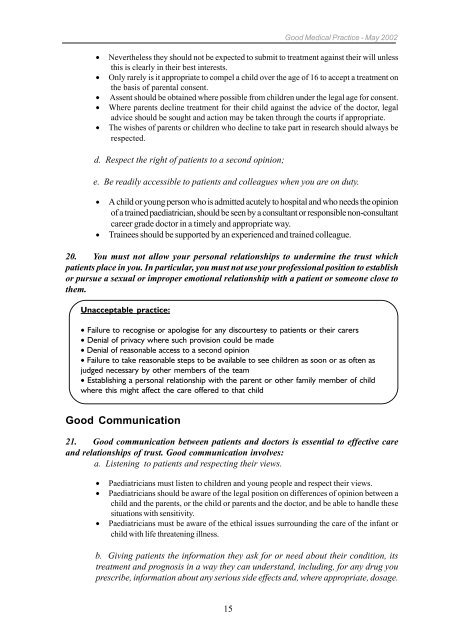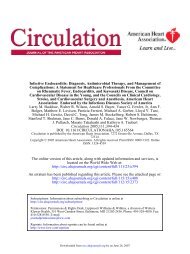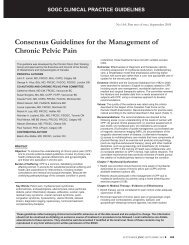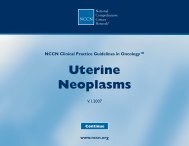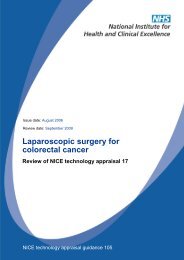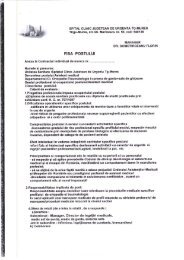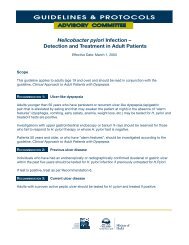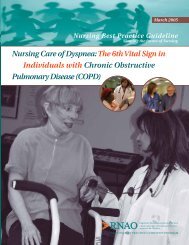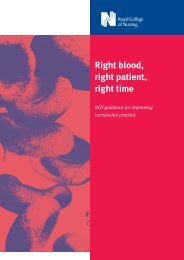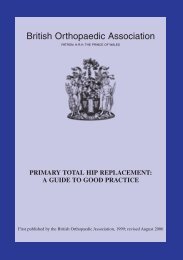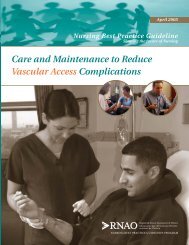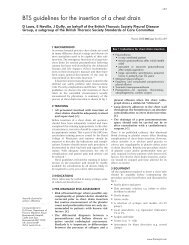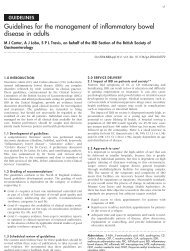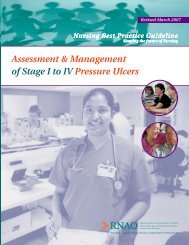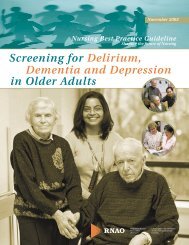• Nevertheless they should not be expected to submit to treatment aga<strong>in</strong>st their will unlessthis is clearly <strong>in</strong> their best <strong>in</strong>terests.• Only rarely is it appropriate to compel a child over the age of 16 to accept a treatment onthe basis of parental consent.• Assent should be obta<strong>in</strong>ed where possible from children under the legal age for consent.• Where parents decl<strong>in</strong>e treatment for their child aga<strong>in</strong>st the advice of the doctor, legaladvice should be sought <strong>and</strong> action may be taken through the courts if appropriate.• The wishes of parents or children who decl<strong>in</strong>e to take part <strong>in</strong> research should always berespected.d. Respect the right of patients to a second op<strong>in</strong>ion;e. Be readily accessible to patients <strong>and</strong> colleagues when you are on duty.• A child or young person who is admitted acutely to hospital <strong>and</strong> who needs the op<strong>in</strong>ionof a tra<strong>in</strong>ed paediatrician, should be seen by a consultant or responsible non-consultantcareer grade doctor <strong>in</strong> a timely <strong>and</strong> appropriate way.• Tra<strong>in</strong>ees should be supported by an experienced <strong>and</strong> tra<strong>in</strong>ed colleague.20. You must not allow your personal relationships to underm<strong>in</strong>e the trust whichpatients place <strong>in</strong> you. In particular, you must not use your professional position to establishor pursue a sexual or improper emotional relationship with a patient or someone close tothem.Unacceptable practice:<strong>Good</strong> <strong>Medical</strong> <strong>Practice</strong> - May 2002• Failure to recognise or apologise for any discourtesy to patients or their carers• Denial of privacy where such provision could be made• Denial of reasonable access to a second op<strong>in</strong>ion• Failure to take reasonable steps to be available to see children as soon or as often asjudged necessary by other members of the team• Establish<strong>in</strong>g a personal relationship with the parent or other family member of childwhere this might affect the care offered to that child<strong>Good</strong> Communication21. <strong>Good</strong> communication between patients <strong>and</strong> doctors is essential to effective care<strong>and</strong> relationships of trust. <strong>Good</strong> communication <strong>in</strong>volves:a. Listen<strong>in</strong>g to patients <strong>and</strong> respect<strong>in</strong>g their views.• Paediatricians must listen to children <strong>and</strong> young people <strong>and</strong> respect their views.• Paediatricians should be aware of the legal position on differences of op<strong>in</strong>ion between achild <strong>and</strong> the parents, or the child or parents <strong>and</strong> the doctor, <strong>and</strong> be able to h<strong>and</strong>le thesesituations with sensitivity.• Paediatricians must be aware of the ethical issues surround<strong>in</strong>g the care of the <strong>in</strong>fant orchild with life threaten<strong>in</strong>g illness.b. Giv<strong>in</strong>g patients the <strong>in</strong>formation they ask for or need about their condition, itstreatment <strong>and</strong> prognosis <strong>in</strong> a way they can underst<strong>and</strong>, <strong>in</strong>clud<strong>in</strong>g, for any drug youprescribe, <strong>in</strong>formation about any serious side effects <strong>and</strong>, where appropriate, dosage.15
<strong>Good</strong> <strong>Medical</strong> <strong>Practice</strong> - May 2002• Paediatricians may have to break serious news to parents about their children, <strong>and</strong>sometimes to children or young people themselves, such as the diagnosis of malignant,disabl<strong>in</strong>g or genetic disease. Such news should only be given by an experienced cl<strong>in</strong>ician,usually a consultant.• Tra<strong>in</strong>ees need practical experience of break<strong>in</strong>g bad news as well as theoreticalconsiderations. Consultants should <strong>in</strong>volve tra<strong>in</strong>ees <strong>in</strong> these <strong>in</strong>terviews where possible<strong>and</strong> ensure that appropriate teach<strong>in</strong>g is given.• Interpreters <strong>and</strong> written <strong>in</strong>formation <strong>in</strong> relevant language should be available for familieswho may not underst<strong>and</strong> English. If possible, other family members should not be askedto <strong>in</strong>terpret <strong>in</strong> these situations.c. Shar<strong>in</strong>g <strong>in</strong>formation with patients’ partners, close relatives <strong>and</strong> carers, hav<strong>in</strong>gfirst obta<strong>in</strong>ed patients’ consent. When patients cannot give consent, you should sharethe <strong>in</strong>formation which those close to the patient need or want to know, except whereyou have reason to believe that the patient would object if able to do so. but wherepossible you should ask patients’ permission first.• Many young people under 16 are Gillick competent (see below) <strong>and</strong> can underst<strong>and</strong> <strong>and</strong>take or participate <strong>in</strong> decisions for themselves.• Paediatricians must recognise that some young people may not wish to share <strong>in</strong>formationwith their parents• A doctor may treat a Gillick competent young person without <strong>in</strong>form<strong>in</strong>g the parents if theyoung person so wishes, provid<strong>in</strong>g the conditions of maturity <strong>and</strong> underst<strong>and</strong><strong>in</strong>g are fulfilled.Gillick competentA child over the age of 16 has all the rights of an adult to consent to treatment, although the parentalright to consent on their behalf also cont<strong>in</strong>ues until they are 18. The child under 16 is able to consentto treatment provided that they are sufficiently mature to underst<strong>and</strong> the nature <strong>and</strong> purpose ofthe treatment.Such children are known as Gillick competent after a case <strong>in</strong> which it was held that a girl of14 or 15 was capable of consult<strong>in</strong>g a GP about contraception without the knowledge of her parents.The extent of Gillick competence clearly varies from child to child <strong>and</strong> the extent to which doctorsshould rely upon their consent varies with the nature of the treatment.22. If a patient under your care has suffered harm, through misadventure or for anyother reason, you should act immediately to put matters right, if that is possible. You mustexpla<strong>in</strong> fully <strong>and</strong> promptly to the patient what has happened <strong>and</strong> the likely long- <strong>and</strong>short-term effects. When appropriate you should offer an apology. If the patient is anadult who lacks capacity, the explanation should be given to a person with responsibilityfor the patient 1 , or the patient’s partner, close relative or a friend who has been <strong>in</strong>volved<strong>in</strong> the care of the patient, unless you have reason to believe the patient would have objectedto the disclosure. In the case of children the situation should be expla<strong>in</strong>ed honestly tothose with parental responsibility, <strong>and</strong> to the child, if the child has the maturity tounderst<strong>and</strong> the issues.• Paediatricians may be placed under difficult circumstances when car<strong>in</strong>g for a patientwhere other professionals have been <strong>in</strong>volved, for example, a newborn baby where thecompla<strong>in</strong>t may be made aga<strong>in</strong>st the obstetric team. The paediatrician should, whilst still1A person appo<strong>in</strong>ted under the Adults with Mental Incapacity Scotl<strong>and</strong> Act, 200016


